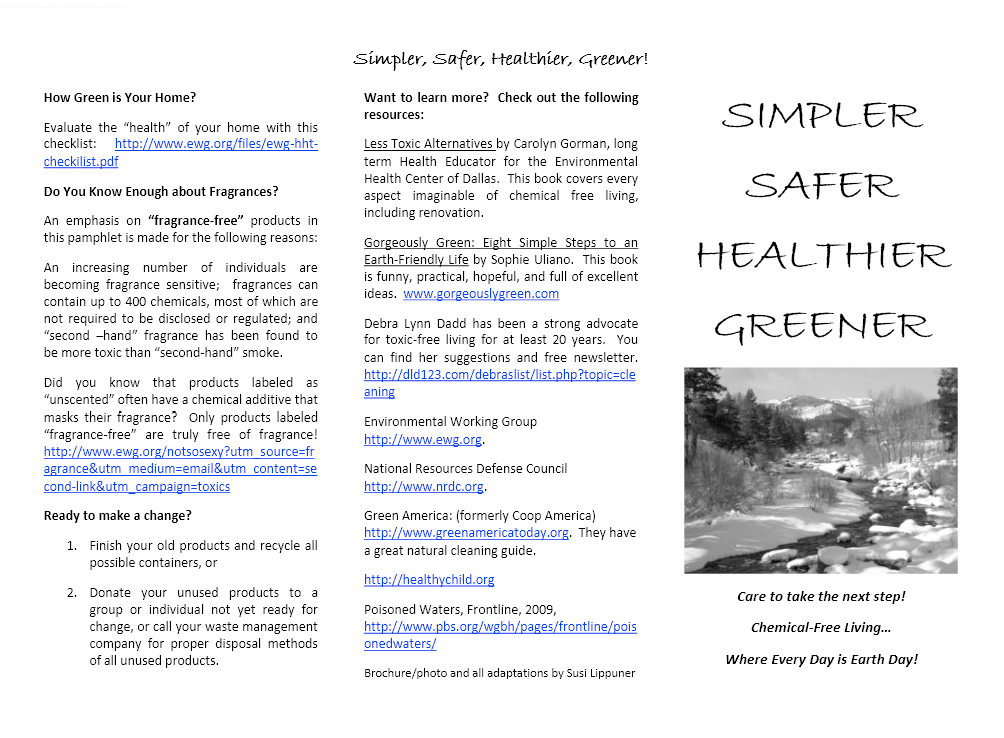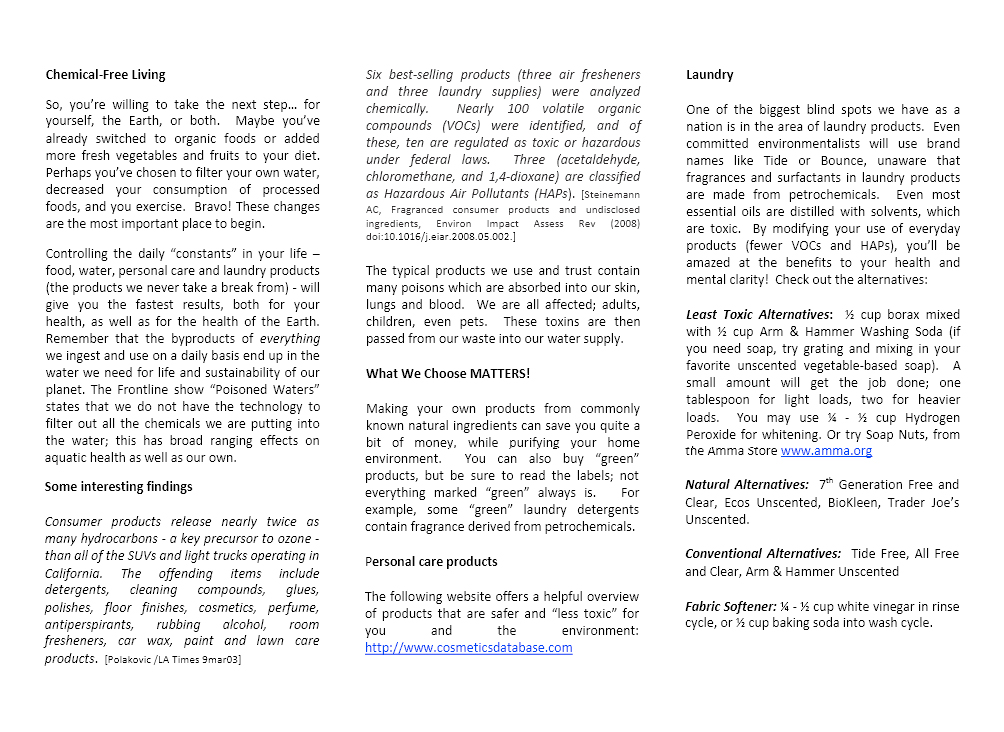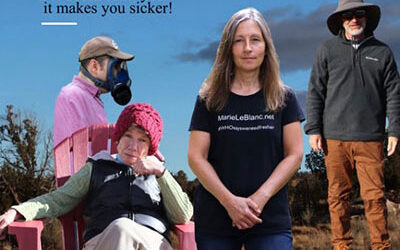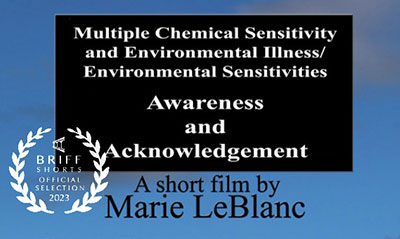Planet Thrive member and MCS patient-activist-educator Susi Lippuner was so inspired on Earth Day last year that she wrote an educational flyer about living a non-toxic lifestyle to hand out to people in her community. In honor of Chemical Sensitivity Awareness Month this May, she had a new batch printed up and is distributing them in her local health food store, library, local therapists’ offices, her family medicine doctor’s office, her two meditation groups, and on the website for her spiritual group.


Susi’s brochure: Simpler, Safer, Healthier, Greener
(click images to enlarge)
Susi even fundraised – successfully – to help cover costs. She received 50% off on printing costs, donated by her local copy center, and the first funds for printing it were donated by a chemically sensitive homeless woman who wanted to make a difference. Susi says the response she’s gotten to it has been wonderful.
Some of the lessons we can learn from Susi’s example:
1. People in our personal health and spiritual communities are often receptive to our homegrown activism projects;
2. Local companies and people with a vested interest in your topic will often want to contribute to the cause – if only you ask!;
3. All you need is an idea – the money to follow through will come, using a little bit of creativity.
The automatic signature line on Susi’s emails to me read “‘There are things in life that call to us, and they are ours to do.’ ~ Alice Walker Author of ‘Overcoming Speechlessness.'” Thank you Susi, for being a shining example of how listening to those things that call to us, and following through on them, can make a difference in our little corners of the world.









0 Comments